Tiếng Anh 9 Friends Plus Unit 1 Từ vựngTổng hợp từ vựng Unit 1: Then and now Tiếng Anh 9 Friends Plus Tổng hợp đề thi học kì 2 lớp 9 tất cả các môn - Chân trời sáng tạo Toán - Văn - Anh - KHTN - Lịch sử và Địa lí I. GETTING STARTED 1. (phr.v) lấy lại I got my teddy bear back eventually. (Cuối cùng tôi đã lấy lại được con gấu bông của mình.) 2. lost property /lɔːst ˈprɒpəti/ (n) tài sản bị mất The hotel had fifteen teddy bears in lost property. (Khách sạn có 15 con gấu bông trong khu thất lạc tài sản.) 3. (phr.v) tình cờ gặp I came across this in a box of old photographs in our attic. (Tôi tình cờ thấy cái này trong hộp đựng ảnh cũ trên gác mái của chúng tôi.) 4. (n) sự miêu tả I had to send a description of my teddy bear. (Tôi đã phải gửi mô tả về con gấu bông của tôi.) 5. (v) nhận ra I didn’t recognise myself at first. (Lúc đầu tôi không nhận ra chính mình.) 6. (v) nhớ I don’t remember this day because I was too young. (Tôi không nhớ ngày này vì tôi còn quá trẻ.)  7. (v) đóng khung I think it’s a cute photo, so I got it framed. (Tôi nghĩ đó là một bức ảnh dễ thương nên tôi đã đóng khung nó.)  8. (n) dây đeo cổ tay My dad took me to Đà Lạt Flower Festival, where I found this wristband. (Bố tôi đưa tôi đến Lễ hội hoa Đà Lạt, nơi tôi tìm thấy chiếc vòng tay này.)  9. (v) quên I’ll never forget seeing many famous singers and artists there! (Tôi sẽ không bao giờ quên được gặp nhiều ca sĩ và nghệ sĩ nổi tiếng ở đó!)  10. look forward to /lʊk ˈfɔː.wəd tuː/ (phr.v) mong đợi I’m really looking forward to it! (Tôi đang rất háo hức mong đợi điều đó!) 11. (phr.v) thuộc về I was upset when I lost this watch because it belonged to my grandad. (Tôi rất buồn khi đánh mất chiếc đồng hồ này vì nó thuộc về ông tôi.) 12. (v) nhắc nhở It’s really special because it reminds me of him. (Nó thực sự đặc biệt vì nó làm tôi nhớ đến anh ấy.) 13. (v) giữ I don’t normally keep souvenirs, but I love this one. (Tôi thường không giữ đồ lưu niệm, nhưng tôi thích cái này.) 14. (n) quà lưu niệm I bought the ring as a souvenir of Greece. (Tôi mua chiếc nhẫn làm kỷ niệm của Hy Lạp.) 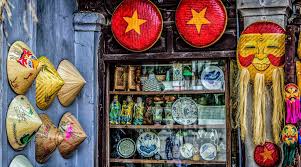 15. (phr.v) nhìn lại (quá khứ) I often look back on that trip – it was awesome. (Tôi thường nhìn lại chuyến đi đó – nó thật tuyệt vời.) II. READING 16. (n) chính phủ At the time, the government was trying to invest in new infrastructure, like highways and railways. (Vào thời điểm đó, chính phủ đang cố gắng đầu tư vào cơ sở hạ tầng mới, như đường cao tốc và đường sắt.)  17. (n) phương tiện giao thông Had bicycles been an important means for many years before the advent of motorized vehicles? (Xe đạp có phải là phương tiện quan trọng trong nhiều năm trước khi xe cơ giới ra đời không?) 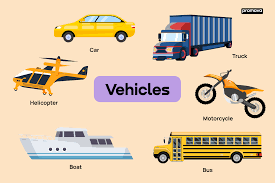 18. (n) cư dân Cars, along with motorbikes, are one of the main vehicles for many city dwellers. (Ô tô, cùng với xe máy, là một trong những phương tiện giao thông chính của nhiều người dân thành phố.) 19. (adj) cạnh tranh In addition, tech-based services are becoming more competitive. (Ngoài ra, các dịch vụ dựa trên công nghệ đang trở nên cạnh tranh hơn.)  20. (n) giao thông Over the years, there have been significant changes to land transport in Việt Nam. (Trong những năm qua, vận tải đường bộ ở Việt Nam đã có những thay đổi đáng kể.)  21. (phr.v) dựa vào People used to rely heavily on bicycles, but modern forms of transport have replaced them. (Mọi người từng phụ thuộc rất nhiều vào xe đạp, nhưng các phương tiện giao thông hiện đại đã thay thế chúng.) 22. (phr.v) đi lại Bicycles were used to get around, commute to work, transport goods to markets, and even to travel long distances. (Xe đạp được sử dụng để đi lại, đi làm, vận chuyển hàng hóa đến chợ và thậm chí để đi những quãng đường dài.) 23. (adj) hiệu quả As the economy grew, there was a need for faster and more efficient transport. (Khi nền kinh tế phát triển, nhu cầu vận chuyển nhanh hơn và hiệu quả hơn.) 24. (phr.v) dẫn đến This led to the introduction of motorbikes due to their speed and convenience. (Điều này dẫn đến sự ra đời của xe máy do tốc độ và sự tiện lợi của chúng.) 25. (phr.v) đầu tư vào Don't you think it's about time you invested in a new coat? (Bạn không nghĩ đã đến lúc đầu tư vào một chiếc áo khoác mới sao?)  26. infrastructure /ˈɪnfrəstrʌktʃə(r)/ (n) cơ sở hạ tầng The city is building new infrastructure like roads and bridges. (Thành phố đang xây dựng cơ sở hạ tầng mới như đường và cầu.) 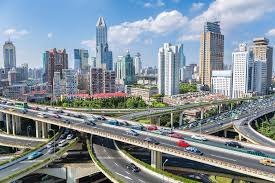 III. LANGUAGE FOCUS 27. (phr.v) do In recent years, the increasing number of cars resulting from economic development has been a new sign of social status. (Trong những năm gần đây, số lượng ô tô ngày càng tăng do sự phát triển kinh tế là một dấu hiệu mới về tình trạng xã hội.) 28. (n) sự phát triển The company can offer a number of opportunities for career development. (Công ty có thể mang lại nhiều cơ hội phát triển nghề nghiệp.)  29. (v) cung cấp The exhibition provides an opportunity for local artists to show their work. (Triển lãm tạo cơ hội cho các nghệ sĩ địa phương thể hiện tác phẩm của mình.) 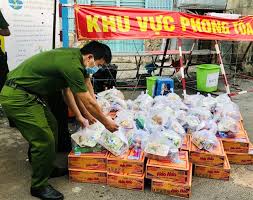 IV. VOCABULARY AND LISTENING 30. (adj) vô giá trị Critics say his paintings are worthless. (Các nhà phê bình nói rằng những bức tranh của ông là vô giá trị.) 31. (adj) cổ hủ, lạc hậu He prefers writing letters in an old-fashioned way instead of using email. (Anh ấy thích viết thư theo cách cổ điển hơn là sử dụng email.) 32. (adj) bị hư hỏng They had to replace the damaged equipment. (Họ đã phải thay thế các thiết bị bị hư hỏng.)  33. (adj) hiếm Serious crime is a relatively rare occurrence here. (Tội phạm nghiêm trọng là chuyện tương đối hiếm xảy ra ở đây.) 34. 35. (adj) khó khăn, cứng rắn It was a tough decision to make. (Đó là một quyết định khó khăn để thực hiện.)  36. (adj) mới toanh She bought her car brand new. (Cô ấy đã mua chiếc xe hơi mới toanh của mình.) 37. (adj) hợp thời trang It's becoming fashionable to have long hair again. (Việc để tóc dài lại đang trở thành hợp thời trang.)  38. (adj) có giá trị My home is my most valuable asset. (Nhà của tôi là tài sản quý giá nhất của tôi.)  39. (adj) phổ biến Breast cancer is the most common form of cancer among women in this country. (Ung thư vú là dạng ung thư phổ biến nhất ở phụ nữ ở đất nước này.) 40. (adj) dễ vỡ Be careful not to drop it; it’s very fragile. (Hãy cẩn thận đừng làm rơi nó; nó rất dễ vỡ.) 41. (n) sự khám phá Researchers in this field have made some important new discoveries. (Các nhà nghiên cứu trong lĩnh vực này đã thực hiện một số khám phá mới quan trọng.) 42. (n) phim tài liệu There were some interesting interviews in the documentary. (Có một số cuộc phỏng vấn thú vị trong bộ phim tài liệu.)  43. (adj) mang tính lịch sử The party has won a historic victory at the polls. (Đảng đã giành được chiến thắng lịch sử tại cuộc bầu cử.) V. LANGUAGE FOCUS 44. (n) thủy thủ A long time ago in Sweden, there was a sailor called Ake Viking. (Cách đây rất lâu ở Thụy Điển, có một thủy thủ tên là Ake Viking.)  45. (v) diễn thuyết, gửi He addressed it to ‘someone beautiful and far away’. (Anh ấy gửi nó cho 'ai đó xinh đẹp và ở xa'.) 46. (v) ném Then he put the letter into a bottle and he threw it in the sea. (Sau đó, anh ta bỏ lá thư vào một cái chai và ném nó xuống biển) 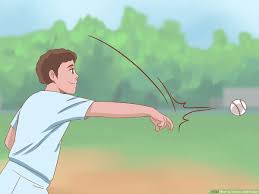 47. (v) làm rỗng One day a fisherman in Italy was emptying his net when he found the bottle and the message. (Một ngày nọ, một ngư dân ở Ý đang thả lưới thì tìm thấy chiếc chai và lời nhắn.) 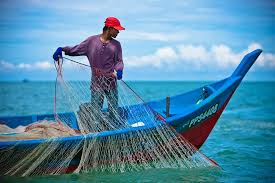 VI. WRITING 48. camping holiday /ˈkæmpɪŋ ˈhɒlədeɪ/ (n) kỳ nghỉ cắm trại We had a great camping holiday in Germany last week, but there were some ups and downs! (Chúng tôi đã có một kỳ nghỉ cắm trại tuyệt vời ở Đức vào tuần trước, nhưng cũng có một số thăng trầm!)  49. (n) cuộc phiêu lưu Tuesday was definitely the biggest adventure. (Thứ ba chắc chắn là cuộc phiêu lưu lớn nhất.) 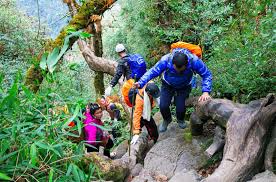 50. (n) công viên giải trí It all started at about seven in the morning, when my dad decided that we should go to a theme park. (Mọi chuyện bắt đầu vào khoảng bảy giờ sáng, khi bố tôi quyết định chúng tôi nên đi công viên giải trí.) 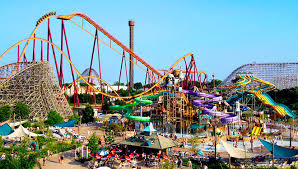 51. (n) khu cắm trại The moment that we left the campsite, it started raining. (Khi chúng tôi rời khu cắm trại, trời bắt đầu mưa.) 
>> Học trực tuyến Lớp 9 & Lộ trình UP10 trên Tuyensinh247.com >> Chi tiết khoá học xem: TẠI ĐÂY Đầy đủ khoá học các bộ sách (Kết nối tri thức với cuộc sống; Chân trời sáng tạo; Cánh diều), theo lộ trình 3: Nền Tảng, Luyện Thi, Luyện Đề. Bứt phá điểm lớp 9, thi vào lớp 10 kết quả cao. Hoàn trả học phí nếu học không hiệu quả.
|





















